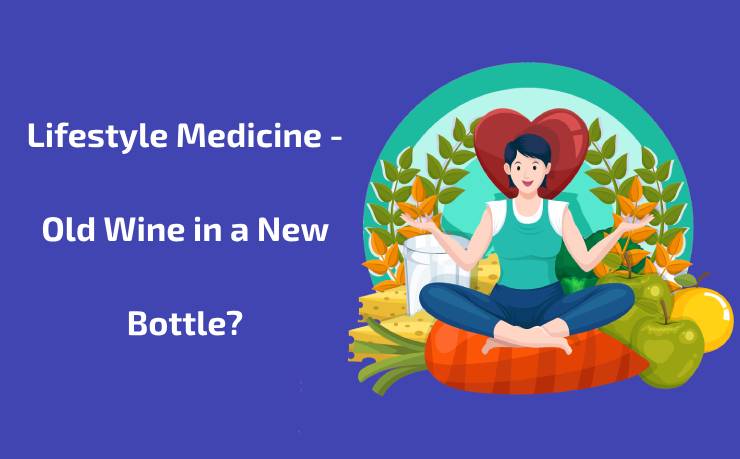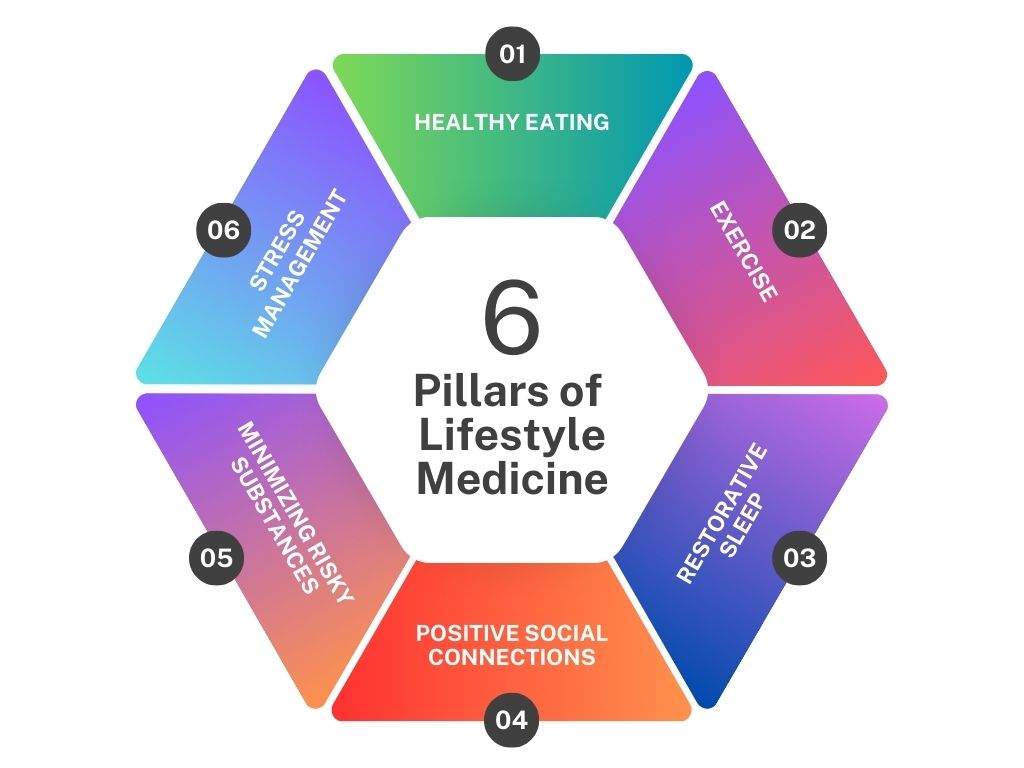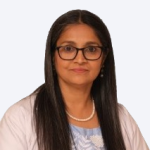Lifestyle Medicine – Old Wine in a New Bottle?

Just like the tremendous progress in the field of technology, medical science too is growing by leaps
and bounds. There are innumerable research studies being conducted at genetic and molecular level and our
armamentarium to fight diseases is ever expanding. Yet the number of diseases and disabilities seems to be growing at an even larger pace. This forces us to ponder whether we are heading in the right direction or we are missing something. In pursuit of detail, are we losing the larger picture?
As much as the advances in science have been a boon for fighting infectious diseases, trauma and chronic diseases comprise over 80 percent of the current illness burden. These have largely remained non-curable and are just being treated with a plethora of pharmaceutical and surgical interventions that focus on managing complications, rarely addressing the root causes.
Throughout most of human history, food was scarce and hard to come by and hard physical activity was required for survival and unavoidable. Modern cultures have devised worlds where physical activity is scarce and hard to come by. Foods are abundant and engineered to be irresistible. Hectic schedules propagate stress and sabotage sleep. Increasing pre-occupations with screens at the cost of time-honoured human
connections is threatening our empathetic human nature. Toxic and addictive substances tempt
us to cope with these circumstances, but unfortunately are ones to which we are poorly adapted and can get addicted.
Lifestyle, the manner in which people live, is fundamental to health, wellness and prevention of disease. Lifestyle medicine addresses how we should live in order to be healthy. It is a rapidly growing discipline that focuses on the role of lifestyle factors in preventing, managing and reversing chronic disease.
The Six Pillars of Lifestyle Medicine

The six pillars of lifestyle medicine are: a whole-food plant-predominant eating pattern, physical activity, restorative sleep, stress management, avoidance of risky substances and positive social connections. It works to treat the whole person by employing lifestyle changes as its foundation for health. It places the patient at the centre and the Lifestyle Medicine Physician uses skills from multiple disciplines like nutrition science, positive psychology, behaviour change, health and wellness coaching, exercise physiology, addiction medicine and sleep medicine with an ultimate focus on the health of the patient.
The core principle is using daily healthy habits to prevent, treat and even reverse chronic diseases.
The recommendations are evidence based as per current scientific research methodologies, yet many of its principles are rooted in ancient cultures and philosophies namely Indian, Chinese or Greek, the forebearer of modern medicine. Among the famous quotes by Hippocrates, the father of Modern Medicine, “Let food be thy medicine and medicine be thy food” or “In order to keep well, one should simply avoid too much food, too little toil” can very well be expanded to encompass the practice of eating plant-based foods, keeping on moving, sleeping well, being present, staying calm, avoiding risky substances and loving people. These are the pillars of Lifestyle Medicine.
Evidence has indeed shown that when lifestyle practices are optimised, 80% of chronic diseases and premature deaths disappear. The Blue zones of the world where these prevail as a cultural norm, there are more years in life as well as more life in years and, more often than not, a peaceful exit at the close.
Like the fact that these days most things in life are reinventions of the past so seems to be the case with Lifestyle Medicine. And yet it seems totally new in today’s context. Lifestyle Diseases that have existed for many years have taken immense importance in the present.
They are:
- Hypertension
- Diabetes Mellitus
- Heart Disease
(Coronary Heart Disease) - Obesity
- Stroke
- High Cholesterol
And the fairly recent ones included in the list:
- Cancer
- Depression and Mental Illness
- Infertility
- Road Traffic Accidents
(last, but not the least).
GSBS Medical Services are offering the facilities and are concentrating on the PREVENTION and CONTROL of these Lifestyle Diseases. POLYCYSTIC OVARIAN SYNDROME (PCOS) is an important constituent of lifestyle diseases seen in adolescent girls and women.
Today, infertility is very commonly seen in young girls and can be a part of this syndrome. It is a
totally reversible entity and with guided treatment, the woman can easily conceive. Polycystic ovaries, hormone imbalance and irregular periods are telltale signs and symptoms of polycystic ovary syndrome. Symptoms include menstrual irregularity, excess hair growth, acne and obesity. These symptoms are cosmetically damaging, but infertility is socially damaging and has to be taken care of. Environmental effects and poor lifestyle contribute to a large extent to PCOS.
GSBS Medical Trust has started a programme ‘PCOS 360°’ for the prevention, control, and management of PCOS. This is a virtual programme and those in need of it should join. Working young ladies can easily participate as the entire programme is online and can be accessed from the comfort of your home.
PCOS 360° is the first one that has a holistic, lifestyle medicine approach towards a chronic condition that has become very prevalent in women, especially in the urban areas. Visit pcos.gsbsmedicaltrust.org to know more about this programme, and to enroll.

By Dr. Deepali Prabhat
Dr. Deepali Prabhat, M.D., D.G.O., D.F.P., F.C.P.S., D.N.B., is an Obstetrician and Gynaecologist with over 20 years of clinical experience. She completed her graduation from the Seth G.S. Medical College and KEM Hospital and post-graduation from Nowrosjee Wadia Maternity hospital. She is currently a senior consultant at Shushrusha Citizen Cooperative Hospital and Raheja Fortis Hospital and has been associated with the G.S.B.S. Medical Trust since the last 24 years. She worked for over 20 years with an NGO, Centre for Social Change for the underprivileged women in the Slums of H East ward. She also has a Diploma in Lifestyle Medicine (Dip IBLM) and a Masters in Population Sciences (M.P.S.).
